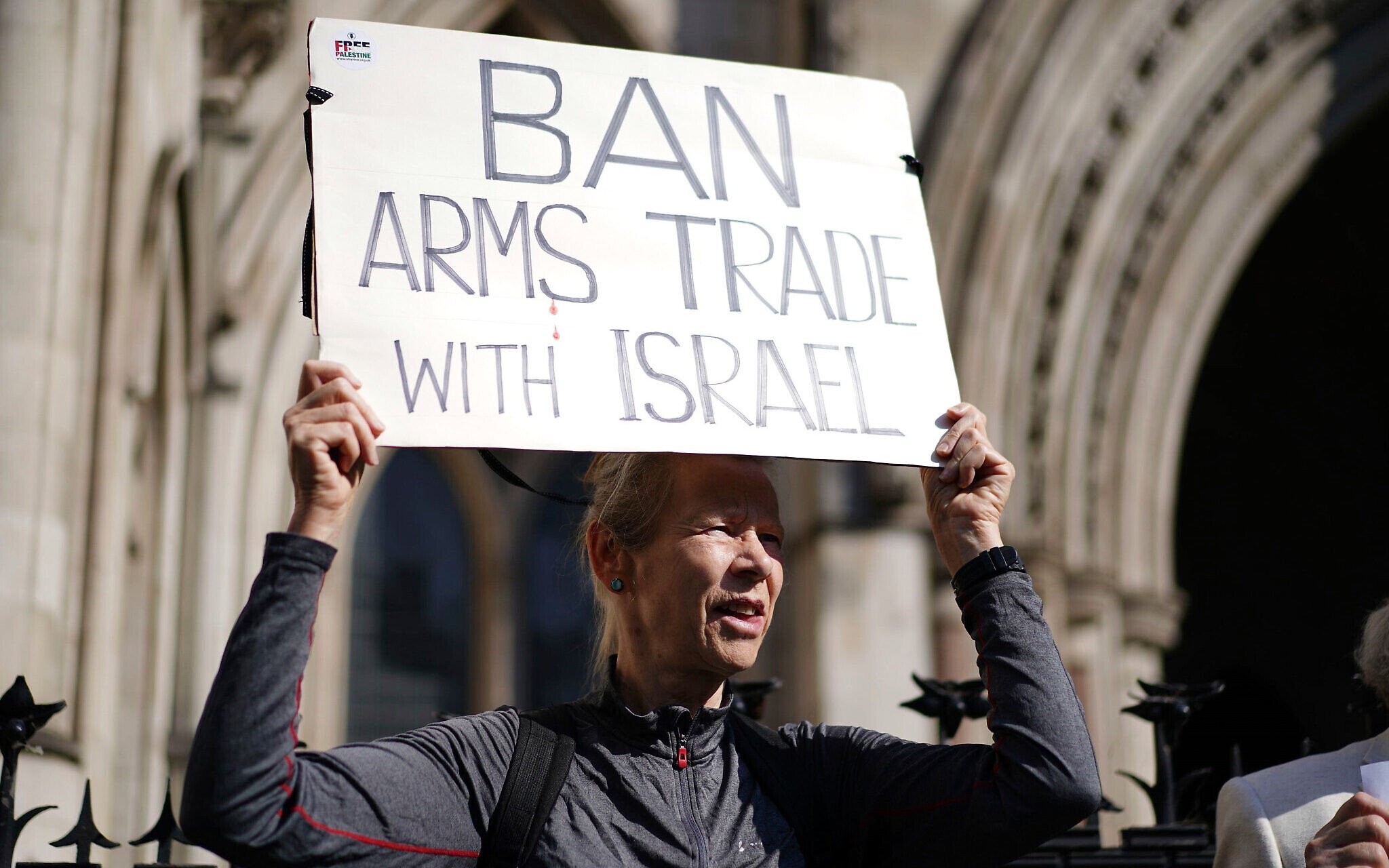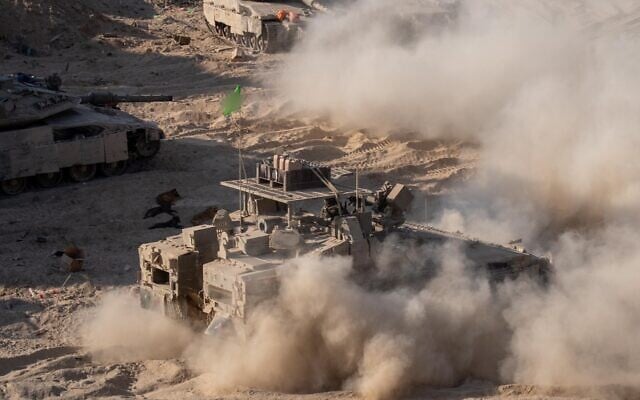



A Palestinian human rights group on Monday lost its legal challenge to the British government’s decision to supply Israel with parts for F-35 fighter jets and other military equipment.
Al-Haq alleged that the UK broke domestic and international law and was complicit in atrocities against Palestinians by allowing essential components for the warplanes to be supplied to Israel.
The government said the ruling showed it had rigorous export rules and it would continue to review its licensing agreements, a spokesperson said.
The government last year suspended about 30 of 350 existing export licenses for equipment deemed to be for use in the conflict in Gaza because of a “clear risk” the items could be used to violate international humanitarian law. Equipment included parts for helicopters and drones.
But an exemption was made for some licenses related to components of F-35 fighter jets, which are indirectly supplied to Israel through the global spare parts supply chain and have been linked to bombing the Gaza Strip.
While Al-Haq argued the UK shouldn’t continue to export parts through what it called a “deliberate loophole,” given the government’s own assessment of Israel’s compliance with international humanitarian law, the government said the parts were distributed to a collaboration involving the US and six other partners to produce the jets.
Al-Haq had its offices in Ramallah shuttered by Israel in 2022, 10 months after the Defense Ministry designated Al-Haq and several other Palestinian groups as terrorist organizations over their alleged links to the Popular Front for the Liberation of Palestine, a leftist terror group. The international community has asserted that Israel has failed to provide convincing evidence to back up its claims.
Components manufactured in the UK are sent to assembly lines in the US, Italy and Japan that supply partners — including Israel — with jets and spare parts, the court said.
Two High Court judges ruled that the issue was one of national security because the parts were considered vital to the defense collaboration and the UK’s security and international peace. They said it wasn’t up to the courts to tell the government to withdraw from the group because of the possibility that the parts would be supplied to Israel and used to violate international humanitarian law in Gaza.
“Under our constitution that acutely sensitive and political issue is a matter for the executive, which is democratically accountable to Parliament and ultimately to the electorate, not for the courts,” Justices Stephen Males and Karen Steyn wrote in a 72-page judgment.
Al-Haq and the groups that supported it, including UK-based Global Legal Action Network, Amnesty International and Oxfam, described the ruling as a disappointing setback, but said they had already made significant gains in getting the government to suspend some arms exports to Israel, and they vowed to continue pressing their case.
“Despite the outcome of today, this case has centered the voice of the Palestinian people and has rallied significant public support, and it is just the start,” said Shawan Jabarin, general director of Al-Haq. “We continue on all fronts in our work to defend our collective human values and work towards achieving justice for the Palestinians.”
Compared with major arms suppliers such as the US and Germany, British firms sell a relatively small amount of weapons and components to Israel. The Campaign Against Arms Trade nonprofit group estimates that the UK supplies about 15 percent of the components in the F-35 stealth combat aircraft, including its laser targeting system.
The Hamas-led massacre that sparked the war saw thousands of Gazan terrorists storm southern Israel to kill some 1,200 people, mostly civilians, and take 251 hostages.
The Hamas-run Gaza health ministry says more than 56,000 people in the Strip have been killed or are presumed dead in the fighting so far, though the toll cannot be verified and does not differentiate between civilians and fighters. Israel says it has killed some 20,000 combatants in battle as of January and another 1,600 terrorists inside Israel on October 7.
Israel denies violations of international law, saying it seeks to minimize civilian fatalities and stresses that Hamas uses Gaza’s civilians as human shields, fighting from civilian areas including homes, hospitals, schools and mosques.
Separately, pro-Palestinian, anti-Israel organization Palestine Action said on Monday it had initiated legal proceedings to challenge the British government’s intention to ban the group under anti-terrorism laws.
The proscription — expected to be laid before parliament on Monday — would make it a criminal offense to belong to the group, and was announced days after its activists damaged two British military planes in protest at London’s support for Israel.
Palestine Action previously condemned the government’s move, calling it “an unhinged reaction,” and said that London’s High Court had granted the group an urgent hearing on Friday to consider permission for a legal challenge to the proscription.
The group is seeking a court order to prevent the government from proscribing the group pending its case being heard, Palestine Action said.
It includes written statements from human rights experts at Amnesty International and others that have expressed concerns “about the unlawful misuse of anti-terror measures to criminalize dissent.”
“The court’s decision to grant an urgent hearing this week is indicative of the vital importance of what is at stake in this case, including the far-reaching implications any proscription of Palestine Action would have on fundamental freedoms of speech, expression and assembly in Britain,” co-founder of Palestine Action, Huda Ammori, said.
Under British law, the home secretary can proscribe a group if it is believed it commits, encourages, or “is otherwise concerned in terrorism.” The ban would put Palestine Action on a par with Hamas, al-Qaeda or ISIS under British law.
The UK Home Office declined to comment on Palestine Action’s legal challenge.
UK Home Secretary Yvette Cooper previously said the group had a “long history of unacceptable criminal damage” and that the government would not tolerate those who put national security at risk.
Palestine Action has regularly targeted British sites connected to Israeli defense firm Elbit Systems as well as other companies in Britain linked to Israel, since the start of the war against Hamas in 2023.



